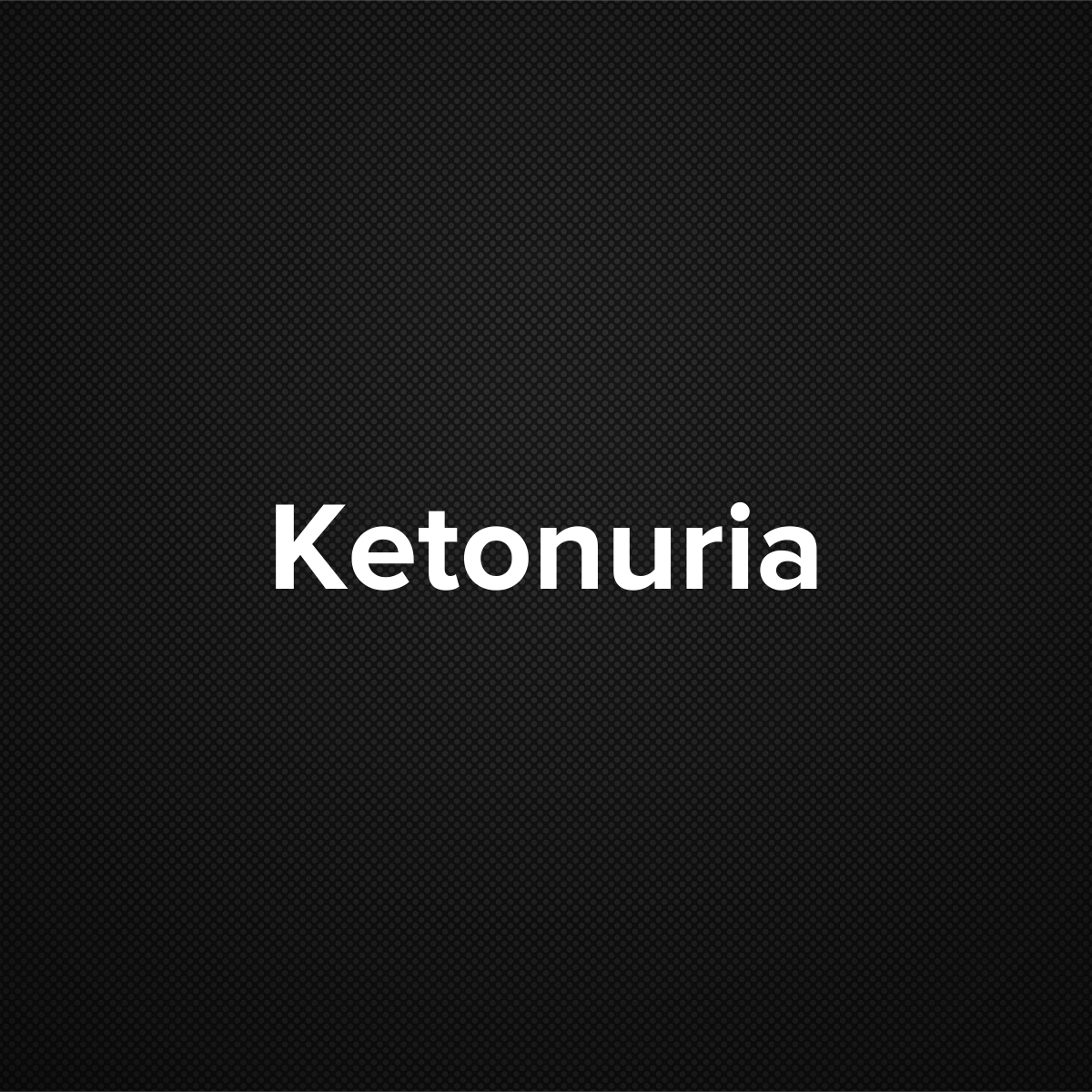Causes and risk factors
Ketone bodies are the byproducts of fat metabolism. They are produced when fat is used as energy source. This happens due to lack of carbohydrates [natural energy source for body] or due to inability to use available carbohydrates as fuel. In such condition, energy is derived from fat metabolism, and hence, more ketone bodies are produced. These excessive ketone bodies are excreted through urine. In diabetes, due to raised blood sugar levels, insulin level increases and there is decrease in glucose utilization by cells which leads to increased lipolysis [fatty acids break down] and increased proteolysis [increased amino acid breakdown]. Conditions that result in less availability of carbohydrates are metabolic diseases like diabetes mellitus, renal glycosuria, glycogen storage disease, etc. Dietary lack of carbohydrates, as found in starvation, fasting, high-protein diet, low-carbohydrate diet, etc.; and prolonged vomiting or diarrhea can also cause ketonuria. Long-term anorexia [poor appetite] also leads to ketonuria. Increased metabolism rate, as found in hyperthyroidism, pregnancy, lactation, and fever can cause ketonuria. Severe, sustained exercise also can lead to ketonuria.
Clinical presentation
Symptoms of ketonuria will vary according to the underlying medical condition. Patient presents with increased thirst, increased frequency of micturition. Patient complaints of nausea. Dehydration occurs and heavy breathing is seen. Breath smells like fruit. Pupils are dilated. Mental confusion may occur.
Investigations
Medical history by the patient and clinical examination by the doctor helps in diagnosis. Urine analysis is done. BSL is estimated. Dipstick method is used to detect the amount. Ketonuria is diagnosed on the basis of amount of ketones present in urine. Tests can be interpreted in the following ways – 0: Negative; 1+ : Trace ketones; 2+ : Small amount of ketones; 3+ : Moderate ketonuria; 4+ : Severe ketonuria. False positive results for ketone bodies in urine can be found in starvation, high-fat diet, alkalosis, and poisoning.
Treatment
Treatment depends upon the underlying cause. Treating the underlying condition is the definite treatment for ketonuria. Controlling diabetes and BSL (blood sugar level) is essential. Treatments should aim towards reduction of fat metabolism and increasing the glucose metabolism. Dietary lack of carbohydrates can be corrected by increasing its consumption.
Complications
Ketones appear in urine before they start building up in blood. Severe ketonuria results in ketone building up in blood, which can lead to a fatal condition called ketoacidosis.
When to Contact a Doctor
One must consult a doctor if one notices unusually sweetish smell of urine or breath or if routine check-up shows increased ketone bodies in the urine.
Prevention
Adequate intake of carbohydrates in diet and control of blood sugar levels in case of diabetes can prevent the disease.
Systems involved
Digestive system, endocrine system, excretory system, circulatory system.
Organs involved
Kidney






























